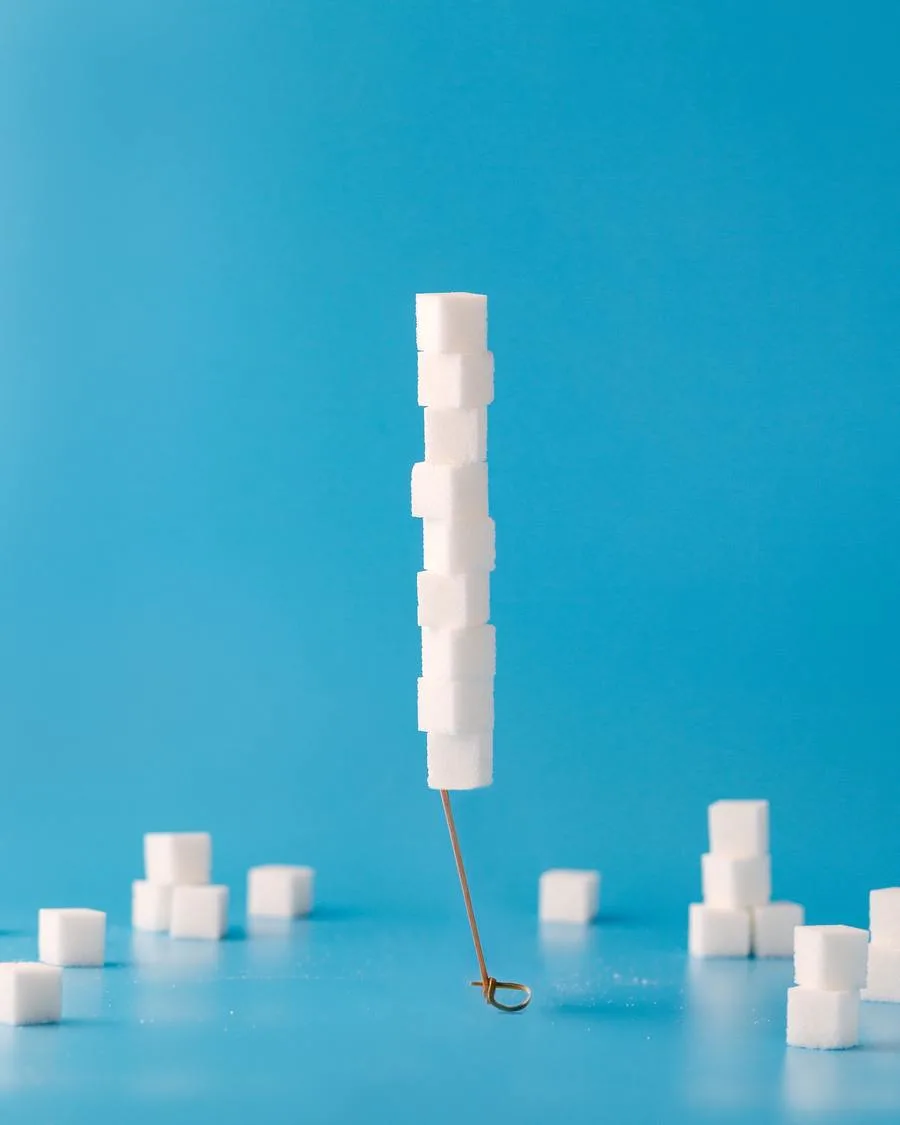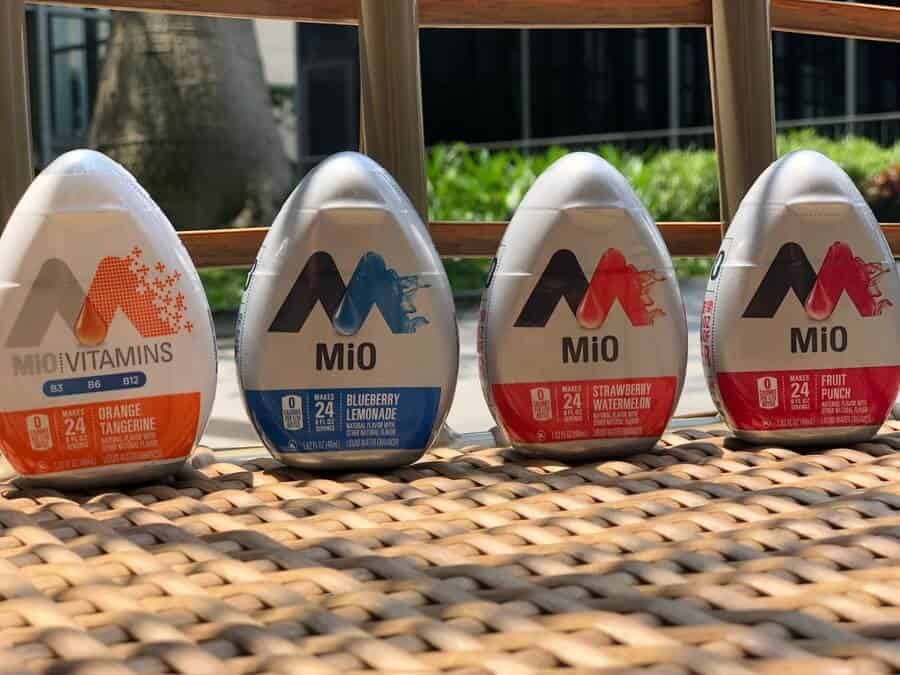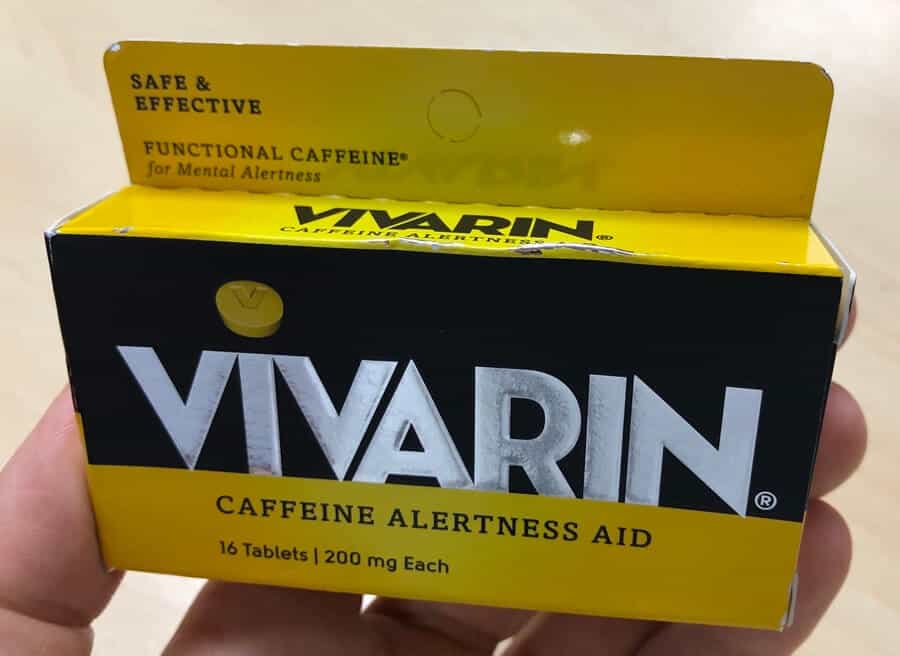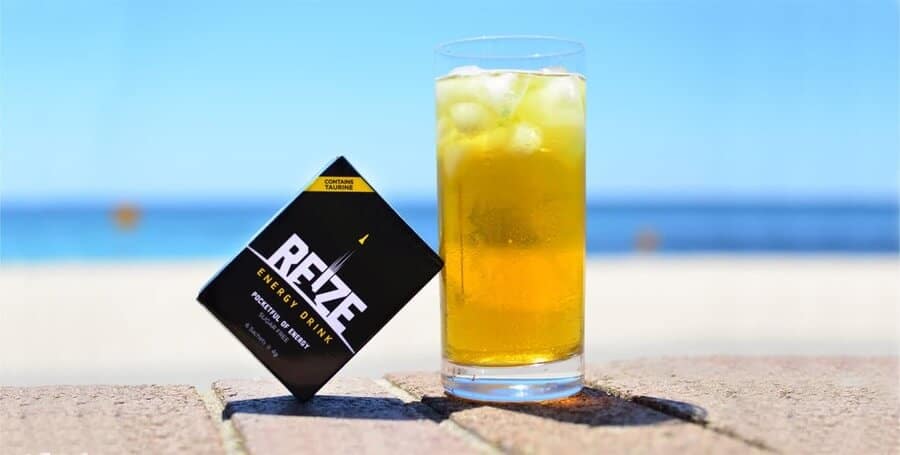Red Bull, Monster, Bang – these energy drink brands are well-known for containing caffeine which gives a great jolt of energy while also tasting delicious.
But perhaps energy drinks aren’t your thing. Maybe you don’t like energy drinks or even coffee at all but you’d still like to have your dose of daily caffeine.
Thankfully, there are plenty of great energy drink alternatives out there. Among them are Mio Water Enhancers, Vivarin caffeine pills, and REIZE Energy Drink.
In this article, I’m going to explain what these energy drink alternatives are and what benefits they offer that might set them apart from regular energy drinks.
Let’s get started…
What are energy drinks?

Energy drinks are beverages promoted as products that can increase energy and improve physical and cognitive performance. Energy drinks have also been proven to reduce sleepiness and enhance alertness and concentration.
Energy drinks are quite popular among adults and youths.
Energy drinks contain many energy-boosting ingredients, including caffeine, sugar, guarana, herbal extracts, amino acids like taurine, B vitamins, and sometimes sweeteners.
Energy drinks are not to be confused with energy shots. While energy drinks and energy shots share a few similarities, energy shots are the more concentrated versions in smaller packages.
Energy shots typically have around the same amount of caffeine as energy drinks but with less sugar and calories. Energy shots may also contain fewer ingredients compared to energy drinks.
Depending on the brand, energy drinks can come in many different flavors. Some energy drinks might even have fruit juice extract as one of their ingredients.
Energy drinks are available in most local stores and convenience marts at varying prices. However, the sale of energy drinks is banned for children under the age of 18 in some places.
Ingredients in energy drinks
Energy drinks contain many ingredients in each serving. To know what they are, make sure to pay attention to the nutritional label and read what they actually include.
Caffeine
Caffeine is the most important ingredient you’ll find in energy drinks. Caffeine is what gives energy drinks the ability to increase your energy levels and make you feel less tired.
Each brand of energy drink contains different amounts of caffeine, ranging from roughly 50mg to 300mg or more.
Aside from supplying you with energy, caffeine can decrease your fatigue and sleepiness. After drinking caffeine, you’ll usually feel more awake and alert.
One study involving 24 participants found that caffeine improves alertness. Another study found that caffeine could increase alertness and performance and maintain attention in situations like working for long hours or doing night shifts.
But like most of the foods and drinks we consume, caffeine should be consumed in moderate amounts.
The FDA states that healthy adults can have up to 400mg of caffeine in a day, with 200mg of caffeine per serving.
Children and pregnant or breastfeeding women are strictly recommended to stay away from caffeine.
Though the American Pregnancy Association considers less than 200mg of caffeine as a safe amount for pregnant or breastfeeding women, they should avoid caffeine as much as possible during this period for the safety of the baby.
If you have any pre-existing medical condition or are currently on medication, you should consult with your doctor first about whether your health allows you to have any caffeine.
Sugar

Sugar is another main ingredient that can be found in many energy drinks. While sugar does contribute to supplying you with fuel, too much-processed sugar is bad for your health.
According to the American Heart Association, the daily sugar intake should be:
| Men | 36g/150 calories |
| Women | 25g/100 calories |
And these amounts take into account all the types of added sugars that you consume in a day from everything you eat and drink.
Excessive sugar intake may lead to a sugar crash which may result in side effects like dizziness, shaking, confusion, and irritability.
Plus, a high-sugar diet could also lead to health problems like:
- Weight gain
- Heart disease
- Acne
- Diabetes
- Cancer
- Depression
- Aging skin
- Cellular aging
- Low energy levels
- Liver problems
- Kidney disease
- Cavities
- Gout
- Dementia
None of that sounds like much fun to me.
Fortunately, there are energy drinks with less sugar or even better, sugar-free energy drinks available that you can easily find in most stores.
Sugar-free energy drinks substitute sugar with artificial sweeteners like sucralose without compromising their delicious taste and benefits.
Some brands like Red Bull and Monster have released sugar-free versions like Sugarfree Red Bull and Monster Zero Ultra.
Other ingredients
Among the other ingredients, you’ll sometimes find mentioned on the label of an energy drink are guarana, taurine, and B vitamins.
Guarana is derived from a plant that naturally has caffeine. Guarana basically adds up to the caffeine content in an energy drink, though it’s usually not included in the total amount of caffeine stated on the nutritional label, so you might want to watch out for that.
Taurine is an amino acid naturally found in meat and dairy and plays a role in several important bodily functions.
When consumed in foods, drinks, and supplements, taurine can provide benefits such as enhanced exercise performance, improved heart health, and help fight against diabetes.
A sufficient supply of B vitamins is essential to ensure good health and wellbeing. B vitamins are directly responsible for the process of cell metabolism, cognitive functions, and energy levels.
Benefits of energy drinks
Energy drinks have many other benefits in addition to providing you with an energy boost. A few known benefits of these drinks are decreasing tiredness, enhancing exercise performance, and improving brain functions.
If you would like to take a closer look at the benefits of energy drinks, check out my other article where I cover things in a lot of detail.
Driving
Caffeine in energy drinks helps to decrease tiredness by binding itself to adenosine receptors, molecules that are responsible for relaxing your muscles and making you feel sleepy, and blocking them from functioning until the effects wear off.
Since caffeine has these properties, this makes energy drinks suitable for helping drivers get through long drives, especially at night.
A 2011 study found that consuming a Red Bull helped highway drivers stay awake through their journey by improving driving performance and reducing symptoms of drowsiness.
Exercise

Many studies have proven that energy drinks can indeed improve exercise performance, which is why plenty of athletes consume them.
A 2016 study involving 18 endurance runners reported that energy drinks enhanced their physical performance during a 5-km time trial.
Another study conducted on elite field hockey players found that consuming energy drinks improved their speed and increased running distance during a field hockey game.
Brain
Energy drinks might also improve your cognitive performance and make you smarter. A 2001 study found that a Red Bull energy drink could increase alertness, reaction time, memory, and concentration.
However, as much as energy drinks can provide such benefits, you need to consume them in moderation.
The simplest way to make sure you don’t go overboard is to follow the daily caffeine intake guidelines from the FDA.
Do energy drink alternatives have the same benefits as energy drinks?
Energy drink alternatives can provide you with similar benefits to energy drinks as most of them contain nearly the same ingredients as regular energy drinks.
The majority of energy drink alternatives also contain caffeine and aim to provide you with energy.
Energy drink alternatives can contain around 50mg to 200mg of caffeine per drink. That’s about the same amount of caffeine you can find in energy drinks that come in cans.
They’re also promoted to supply you with more energy, improve brain functions, and enhance athletic performance.
These alternatives stand out from typical energy drinks as they’re more compact, lighter, and in many ways, more convenient.
But ultimately, like energy drinks, they also need to be consumed in moderation since overconsumption can lead to undesirable side effects.
Types of energy drinks alternatives
Water enhancers
The purpose of water flavor enhancers is to enhance the flavor of plain drinking water. Usually, these enhancers come in small bottles and contain sugar, colorings, and flavors.
Some water enhancers use artificial sweeteners instead of sugar and have zero calories. There are also water enhancers called ‘energy-water enhancers’, which do pretty much the same thing except these ones contain caffeine.
Caffeine pills
As the name implies, caffeine pills are tablets that contain nearly pure caffeine content. Instead of cans, these pills come in boxes. Like regular pills, you have to consume them with water.
Energy drinks powders
Energy drink powders are basically energy drinks in powder form. These types of energy drinks are available in sachets, tubes, and containers.
Powdered energy drinks need to be mixed with water before you can consume them.
Since they’re in powder form, it’s easier for you to control the taste of your drink and they’re incredibly easy to carry around too.
Can energy drink alternatives help in weight loss?
Energy drink alternatives don’t directly help with weight loss. However, they can supply you with an energy boost that could energize you during your workouts so you’ll burn more calories.
According to an article from Healthline, consumption of caffeine can cause an increase in fat burning and metabolic rate. But, this will only happen when you exercise and burn more calories than you consume.
Plus, caffeine has been known to enhance exercise performance and could help you to work out longer and harder.
Though, the effects of caffeine might start to diminish as you build a tolerance to caffeine over time.
Thus, energy drink alternatives aren’t the best way to help you lose weight unless you work out when you drink them.
If you plan to make these energy drink alternatives part of your exercise routine, it’s best to limit your intake to reap the benefits.

Do energy drink alternatives cause dehydration?
Some energy drink alternatives like caffeine pills may cause dehydration as caffeine is a diuretic and could increase the frequency of urination. But some studies have found that there’s a very unlikely probability that caffeine could cause dehydration if consumed moderately.
Caffeinated drinks do have a diuretic effect which will make you want to urinate often, but the risk of dehydration is quite low. In fact, low to moderate amounts of caffeine have been found to be as hydrating as water.
A 2014 study found that moderate caffeine intake had similar hydrating qualities as consuming plain water.
However, caffeine overdose can cause increased thirst. Remember to limit your caffeine intake to no more than 400mg per day.
Hence, to avoid dehydration and other side effects, you should consume these energy drink alternatives in moderate amounts even though you drink them with other fluids.
What are the side effects of energy drink alternatives?
Energy drink alternatives can lead to side effects like caffeine overdose, increased heart rate, and weight gain. To prevent yourself from experiencing such adverse effects, you need to control your consumption despite the fact that these energy drink alternatives may not have any sugar or calories.
If you go overboard with your caffeine intake, you might experience side effects like:
- Dizziness
- Increased thirst
- Diarrhea
- Headache
- Fever
- Trouble breathing
- Vomiting
- Hallucinations
- Chest pain
- Irregular or fast heartbeat
Do energy drink alternatives work?
Energy drink alternatives do work depending on your caffeine tolerance and your body’s response to caffeine in general. If you have a sensitivity to caffeine, you might not be able to consume much of these drinks and may need to control your caffeine intake.
Like energy drinks, energy drink alternatives work in the same way energy drinks do in terms of providing energy.
For some people, energy drink alternatives may not be the best choice as it could be a hassle to make these drinks when they’re in a hurry.
Others may find energy drink alternatives to be healthier and more convenient options compared to regular energy drinks and prefer that they can control how concentrated they want their drinks to be.
Additionally, energy drink alternatives are usually more affordable than ready-to-drink energy drinks.
Best energy drink alternatives
In no particular order, here are a few great energy drink alternatives that you might like to take a closer look at.
Mio Water Enhancers

Mio Energy Water Enhancers come in small bottles and are supposed to enhance the flavor of your water or sparkling water by making it sweet. These water enhancers have 60mg of caffeine per squeeze, an amount of caffeine I consider quite sensible.
Mio Energy is also sugar-free, so you won’t need to worry about the risk of weight gain over time.
However, the cost of one bottle of Mio Energy is around $3.79, which is quite pricey in my opinion. But you need to take into consideration that you can make a few drinks from one bottle of Mio Energy so it might be worth your money.
If you have extra money to spend, Mio Energy Water Enhancers might be suitable for you.
Vivarin caffeine pills

Vivarin caffeine pills come in the form of tablets and contain 200mg of caffeine in each pill. For me personally, that’s more caffeine than I’m used to.
Plus, Vivarin’s main purpose is to act as an alertness aid. These Vivarin caffeine pills contain caffeine, protein, and other ‘inactive ingredients’. These pills, like other pills, need to be consumed with water.
The price of a single pack of 16 Vivarin tablets is around $6.84, with one pill costing $0.43. Compared to most energy drinks, that is an affordable price.
However, if you have low caffeine tolerance you might have to go for other alternatives.
Additionally, I found that I didn’t get much of a boost from these pills and put the underwhelming effects down to a lack of vitamins and other ingredients found in energy drinks.
REIZE Energy Drink (10 out of 10)

REIZE is a powdered energy drink that comes in 4g sachets.
REIZE is really light and convenient to carry around anywhere you go. You can also tailor it to match your taste and REIZE can be mixed with almost any beverage, including soda and juice.
Furthermore, REIZE contains 50mg of caffeine, a sensible amount of caffeine that can deliver an amazing energy boost without adverse effects afterward.
Aside from being sugar-free, REIZE also has plenty of beneficial ingredients like taurine, ginseng, and B vitamins that could improve both your physical and mental performance.
The best part is that REIZE only costs around $1 per drink, including shipping right to your door.
That’s great value for money.
Try REIZE today and you might also soon make it your new favorite alternative to regular energy drinks.

